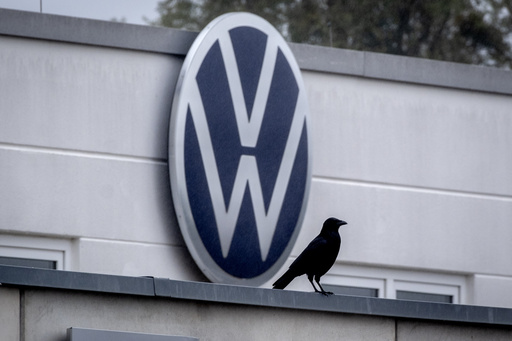
WARSAW, Poland — The recent failure of Germany’s ruling coalition and the upcoming return of Donald Trump to the White House are introducing fresh uncertainties for the largest economy in the European Union, which is currently grappling with significant challenges.
Germany’s economic performance has been on a declining trajectory for two consecutive years, impacted by factors such as the aftermath of the COVID-19 pandemic, the ongoing conflict in Ukraine, and growing competition from China. Chancellor Olaf Scholz’s coalition government, composed of three parties, struggles to address both domestic issues and global pressures, lacking a unified approach on vital economic matters.
The crisis reached a climax when Scholz announced the dismissal of Finance Minister Christian Lindner, effectively dismantling the coalition and leaving the government without a parliamentary majority. This breakdown followed weeks of internal conflict centered on strategies to revitalize Germany’s stagnant economy.
Scholz has stated his intention to call for a confidence vote in parliament on January 15, with potential early elections possibly occurring by the end of March if he fails to secure support. Although the next scheduled election is not until September, Scholz plans to consult with opposition leader Friedrich Merz from the Christian Democrats regarding measures to enhance the nation’s economy and defense capabilities.
Business leaders are urging quicker action from Scholz to stabilize the government and address the crisis. “Every additional day with this federal government is a lost day. We demand new elections as soon as possible,” voiced Dirk Jandura, president of the German wholesale lobby BGA, emphasizing the necessity for an economic turnaround before the situation worsens.
The disintegration of the coalition coincided with European leaders absorbing the reality of another Trump presidency and its potential repercussions on European security and economic stability. “Political instability in Germany is not good news at the European level,” noted Antonio Villafranca, vice president of the Italian think tank ISPI, highlighting the critical role of a robust Franco-German alliance in counterbalancing challenges during Trump’s previous term.
Trump’s prior threats to reduce NATO commitments and alter support for Ukraine raise concerns, as do his proposals for imposing tariffs up to 20% on EU goods, which could precipitate a trade conflict with European allies. Such tariffs would adversely affect German exports, presenting additional turmoil for an economy that has historically relied on a steady flow of affordable energy from Russia and vast export opportunities.
Germany’s industrial sector remains in recovery mode from the disruptions caused by the pandemic, and the full-scale invasion of Ukraine by Russia in 2022 has led to a significant reduction of reliance on Russian gas and oil. Moreover, competition from China’s electric vehicles has increased pressure, leading to production cuts and job losses among German and European automotive manufacturers.
“Recent political developments have clouded the already dismal short-term outlook for the German economy,” commented Carsten Brzeski, head of macro at ING. He emphasized that a second Trump term, coupled with anticipated new trade tensions, could severely impact the German economy, which directs about 10% of its exports to the U.S. “It’s easy to envision U.S. tariffs targeting European cars exacerbating the challenges faced by the German automotive industry.”
However, some analysts argue that Trump’s tariff policies could inadvertently bolster Germany’s automotive sector, which has struggled amid the weakening economy. Daniel Gros, director of the Institute for European Policymaking, posited, “Trump could be a savior for the German automotive industry” by maintaining tariffs on Chinese electric vehicles, noting that the U.S. remains a unique market where German carmakers face minimal competition from China.
Recent announcements from Volkswagen about plans to close at least three factories in Germany represent a notable shift, marking a first in its nearly 90-year history. “Fewer factories may be necessary to close, but some will inevitably need to go,” Gros stated.
Scholz’s decision to relieve Lindner followed discussions between his Social Democrats and the Greens for extensive state investments, which were met with opposition from Lindner’s Free Democrats, who resisted tax hikes and changes to debt regulations. Scholz criticized Lindner for promoting affluent tax cuts while advocating for pension cuts, calling his stance neither fair nor decent.
Initially forged in 2021 to form a forward-thinking coalition across ideological lines, Scholz’s government has accomplished certain objectives, like mitigating an energy crisis and initiating military modernization, yet many Germans perceive its performance as increasingly dysfunctional.
“Given the global political landscape and Germany’s lackluster economic progress, we urgently need a new, effective government with a parliamentary majority,” remarked Siegfried Russwurm, president of the Federation of German Industries, forecasting that uncertainty would likely escalate with the new U.S. government taking office in early 2025.
